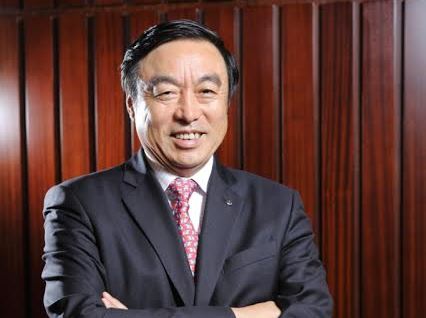Mr. Ma Weihua is the head of the delegation, Executive Chairman of China Entrepreneur Club and Former President of China Merchants Bank.
China's College Entrance Exam changed the course of Ma Weihua's life, as it did to many others educated youth of the country. In 1978, Ma, having worked as a railway worker for years, was admitted to the Economics Department of Jilin University, from which he graduated four years later in 1982. Upon graduation he was assigned to work at the Provincial Planning Commission of Liaoning Province. In 1988, along with Li Guixian, Ma, as his secretary, was transferred to the People's Bank of China, the country's central bank. From 1988 to 1992, Ma served as Vice Director of the bank's General Office and later as Vice Director of its Planned Finances Department. During his tenure at the bank, Ma not only witnessed first-hand how China introduced financial reforms and launched its effort to commercialize its banking sector, but he also became involved in many key regulations as a designer, supervisor and enforcer.

In 1992, Ma was simultaneously appointed as Director of the central bank's Hainan branch and as Director of the Hainan branch of the State Administration of Foreign Exchange. In the 90s, he directed the work toward the closing and liquidating of Hainan Development Bank, the first case in China to involve any domestic commercial bank going bankrupt.
After the case was closed, Ma had new plans for his future, where he felt a strong desire to experiment in China by establishing a real commercial bank. At that time, China Merchants Bank (CMB) was looking for candidates to fill the vacancy for its top job. After some research, the bank focused its attention on Ma.
Established in 1987 as the first joint-stock commercial bank in China to be wholly owned by corporate legal entities, CMB, headquartered in Shenzhen, was always at the forefront of the country's effort to introduce reforms. It had a mere 100 million yuan capital, an outlet and over 30 employees at the time of its establishment. Back then, services were hardly offered to any group other than large businesses in China's banking sector, leaving small- and medium-sized businesses in dire need of services, and retail services were seriously lagging behind. In fact, interest normally accounted for over 90% of a bank's gross revenue.
Compared with the five major state-owned commercial banks, CMB was quite weak in terms of financial strength and the number of available outlets. It was these weaknesses, however, that would give Ma a lot of space to put his talent to good use. In 2004, Ma made clear the need to transform CMB and planned to build it into China's retail bank with the greatest competitive edge. To execute his plans for CMB's future, he devised a three-phase strategy, which involved building a considerable network of service outlets in the first phase, bringing all available capital to the market during the second one and going global during the third one.
Led by Ma, CMB came into possession of a universal electronic platform and established itself as a technologically advanced bank. He led CMB to become the first bank to offer services online, thereby making it one of the most important online payment banks in China's e-commerce. Continuous innovation has enabled CMB to develop from a small regional bank headquartered in Shekou, Shenzhen, into the 6th largest bank in China, just behind China's five major state-owned banks (ICBC, ABC, BOC, CCB, BOCOM). After years of development, CMB has long been recognized as China's best retail bank. Moreover, CMB has issued over 36 million cards, commanding a considerable market share in China's credit-card market, a remarkable feat that is widely acclaimed as a miracle in the history of the credit card and has been included as a case study in some MBA textbooks of Harvard.
After his retirement, Ma was invited to serve as a member on the boards of directors of many public companies. He has been made a visiting professor at 22 domestic and foreign universities. Currently, Ma is serving as Director of One Foundation, China's first non-governmental public fund-raising foundation.
SOURCE: China Entrepreneur Club




